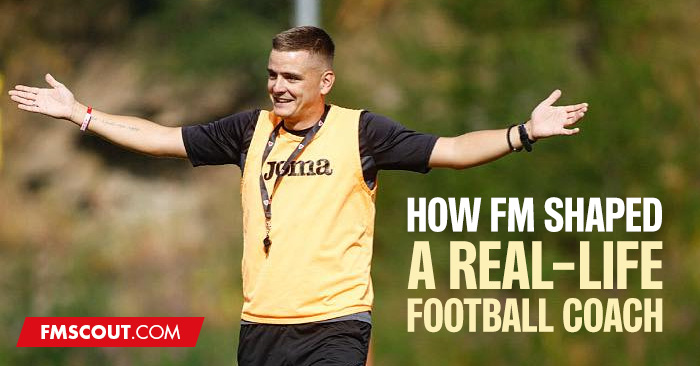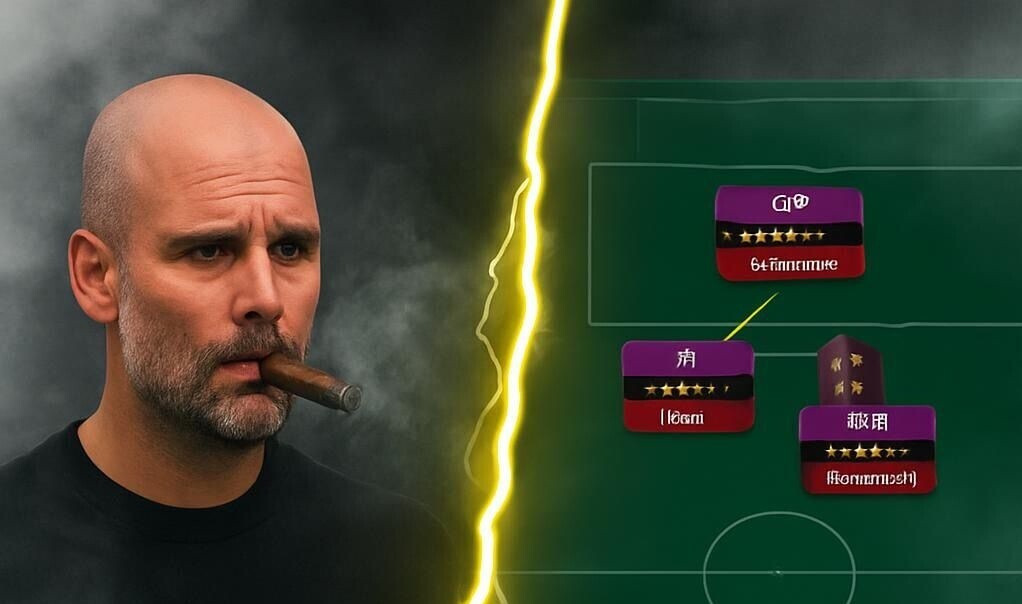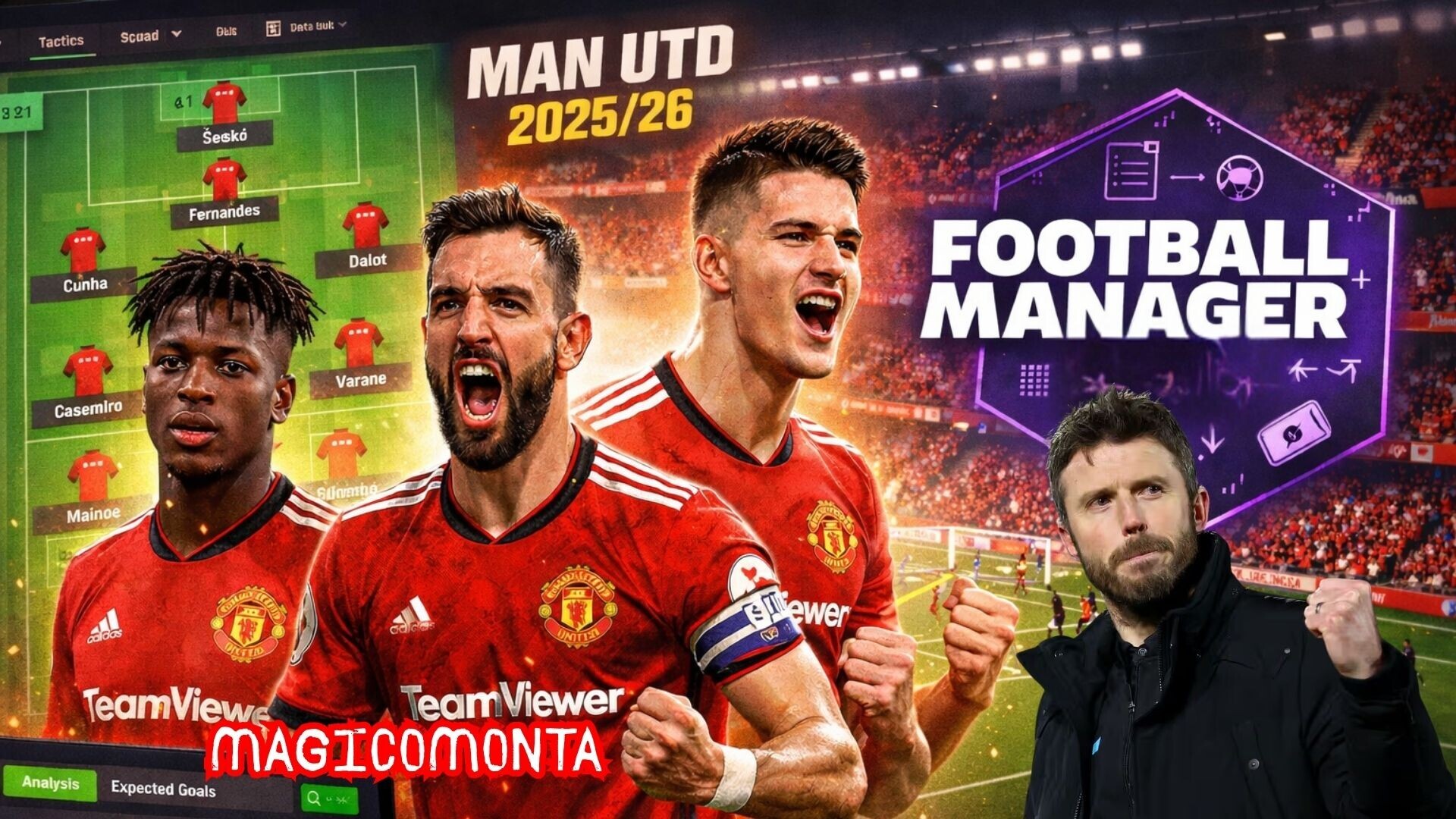
For a devoted fandom such as fmscout.com, the dream of stepping from the virtual dugout into a real-life one is a frequent daydream, riven by countless hours of experimenting with tactics, unearthing wonderkids, and trawling the transfer market. But what happens when that dream turns into a reality?
Dusan Momirovic is one of the few who can answer that question. A professional football coach with over two decades of experience in the game, he has a unique vantage point from which to compare the hyper-realized world of Football Manager with the grimy, real-world world of the sport.
We've had the privilege of having him on our Facebook group the other day when he graciously responded to over a hundred questions posted by group members. You can view the relevant post here.
For this article, I've used the discussion in that post and some of the discussion in Reddit threads, followed by 10 questions of mine and the answers exactly as written by Dusan.
His own story provides an interesting parallel to other prominent figures in modern football, including Will Still, the young Southampton manager who famously attributes his passion for the Football Manager and Championship Manager series as the foundation for his professional coaching career.
This article delves into Dusan's unique perspective, exploring the profound similarities and, more importantly, the crucial differences between managing teams on a computer screen and leading a team on the training pitch.
It’s an exploration of what the game gets right, what it fundamentally misses, and how the skills learned in a simulated universe can - and cannot - be translated into the real world of professional football.
The Tactical Mindset: From Whiteboards to the Pitch
One of the great draws of Football Manager is its advanced tactical system. Players can experiment with various formations, direct intricate team instructions, and define the roles of players with a level of control that is both liberating and authentic.
It's a sharp, deterministic system in which the player's choices appear to exert a material, quantifiable impact on the outcome.
This expresses a core function of a real-life football coach, whose main concern is "developing the tactical and technical aspects of the game" and "studying the opponent". In this way, the game and reality are in harmony with one another.
The apparent simplicity, however, conceals a profound difference. The game provides a transparent and logical system: a player sets up a high-press tactic and the match engine processes those instructions, with success largely dependent on the virtual players' attributes.
In reality, a coach's tactical vision is not a series of commands executed by a machine. It is a concept that must be taught, understood, and executed by human beings who are subject to fatigue, emotion, and miscommunication.
The most significant distinction is not the what - the tactical concept itself - but the how; the process of communication and execution.
In addition to creating a 4-1-5 tactic, a coach must make sure that 11 players, each with unique skills and weaknesses and on-field instincts, can execute it as a team under extreme pressure.
The theory of tactical design and analysis is taught in the game, but it is unable to replicate the many hours of practice, continuous reinforcement, and essential nonverbal clues needed to transform a blueprint into a seamless, fluid performance.
That is why a coach will spend a tremendous amount of time getting his team ready to read and execute the tactic, something far beyond a few taps of a virtual menu.
To illustrate this fundamental divide, we can look at the contrasting approaches to various aspects of football management.
Tactical Execution
FM: Sliders and pre-set instructions within a match engine.
RL: Human communication, on-field drilling, and adapting to the chaos of a live game.
Player Morale & Discipline
FM: Numerical ratings and a limited set of dialogue prompts.
RL: Navigating intricate interpersonal relationships, managing ego, and handling unpredictable emotional dynamics.
Scouting & Transfers
FM: Data-driven reports, star ratings, and transparent financial numbers.
RL: Human networks, subjective judgment, and complex, high-stakes negotiations with agents and other clubs.
Board Management
FM: Simple satisfaction ratings and clear, numerically defined objectives.
RL: Navigating club politics, complex financial pressures, and managing the subjective expectations of executives and owners.
Match Day Decisions
FM: An in-game interface with quick, in-match substitutions and tactical changes.
RL: Keeping emotional control, yelling directions from the sidelines, and reading player body language.
Transferable Skills
FM: Strategic planning, data analysis, and theory of tactics.
RL: Patience, communication, leadership, empathy, and emotional intelligence.
The Human Element: Managing People, Not Numbers
While Football Manager's tactical depth is a major selling point, its simulation of the human element is where it falls short. The community is deeply invested in their "FM Careers" and the stories that unfold with their players.
The game's player morale, team cohesion, and happiness system on a player-by-player basis is a sophisticated abstraction, but it's nothing compared to the dirty, disorderly reality of a professional football dressing room.
The most jarring difference, as one Reddit user with coaching experience put it, is that real-life coaching requires a "whole different range of skills," including "a lot of patience, a lot of shouting and you need to leave your ego at the door".
This sentiment gets to the heart of the matter: FM simplifies human interaction into a predictable series of dialogue prompts and numerical outcomes. A player can make up for their dissatisfaction with a fine, a click and some words, or both.
In real life, however, a player's mood depends on a multitude of factors beyond the game's comprehension: their home life, personal confidence issues, relationships with teammates, and their perceived rank in the team pecking order.
A refusal to pay a fine for swearing at a ref, for example, is not an easily offered "refusal" option from a menu. It's a situation where one needs to have a coach assert control but have a functional relationship with the player.
This isn't a problem to be solved by a quick disciplinary action. It's a communication and leadership test, a challenge to keep rules honored without creating a pettifogging issue into an outright crisis that could "spiral quickly" and undermine teamwork harmony.
Football Manager is a predictive model of human behavior; it teaches you to anticipate a player's reaction based on their attributes and a set of predefined conditions.
Real coaching, however, is a totally adaptive process. There is no formula for getting a depressed star player up or resolving an in-depth dispute between two of your star players.
The game lays down the pattern of strategic man-management, but the job itself demands an instinctive, intuitive understanding of human nature that can be learned only through direct, day-to-day contact.
The Business of Football: Scouting, Transfers, and The Boardroom
Beyond the tactical and human elements, the business side of football is another area where the game provides a compelling, yet ultimately limited, simulation. The fmscout.com community thrives on finding the next "wonderkid" and using data updates to stay ahead of the curve.
The game makes this process accessible, providing detailed scouting reports with objective ratings, attributes, and star rankings. The financial aspects of transfers are also relatively transparent, with clear budgets, wage allocations, and negotiation menus.
This is a fundamental skill for a real manager, who must handle "player transfers and contracts" and "negotiate terms" with a "deep understanding of the football market".
While FM provides an excellent conceptual framework for this, it cannot replicate the unquantifiable factors that define the real-world transfer market. Scouting, for example, is not just about a report showing a player’s potential; it’s about a vast network of human scouts, trusted advisors, and personal observations.
A transfer is not a simple negotiation in a menu but a complex, high-stakes game of poker involving agents, club executives, and competing clubs. The reasons for a deal falling through can be entirely non-footballing: a player's personal demands, an agent's complicated fee structure, or board interference.
The game teaches one to analyze information and make a well-considered, strategic decision. It does not teach the fundamentals of bargaining, the art of building trust with an individual and his representative, or the political savvy to work the pecking order in a club.
The game establishes a model of market analysis, but it's in an artificial environment missing the subjective, relationship-driven quality of the real business.
A manager might spend as much time on the phone with agents as they do on the training pitch, a reality that the game's simplified "negotiation" screen can never fully convey.
The Football Manager Generation: A New Breed of Coach?
The question of whether Football Manager is a valid training ground for coaches is a timely one, particularly given the rise of coaches like Will Still, who explicitly credits the game for helping him transition from playing to coaching. He isn’t alone; as one Reddit user commented, the game can serve as a catalyst, stating, "I actually got into coaching because of FM".
This trend suggests a new generation of "data-native" coaches who think in terms of tactical systems, probabilities, and player attributes. They enter the coaching world with a solid theoretical foundation that older generations might have spent years acquiring through traditional apprenticeships and courses. The game democratizes football knowledge, making complex ideas accessible to anyone with a computer.
However, this intellectual preparation also comes with a risk: the illusion of proficiency. The game teaches a player how a system should work, but cannot prepare them for the chaos and unpredictability of human failure.
An aspiring coach who grew up on FM might have a detailed tactical philosophy but lack the essential soft skills - leadership, patience, and emotional intelligence - that are the true currency of the coaching world.
The "FM generation" is a real and welcome phenomenon within football, as they bring with them a systems-based, analytical mentality.
But their journey from virtual dugout to real one is not untroubled; it's one of transitioning from a protected world to an actually anarchic one, where they must learn to relinquish the game's abstractions and bask in the wonderful, infuriating reality of human beings.
More Than a Game, Less Than a Job
Dusan Momirovic's story underscores a fundamental truth about Football Manager: it is an unparalleled simulation for learning the principles of football management.
It’s a masterclass in tactical theory, financial strategy, and the mechanics of squad building. For those who can't get on a pitch to learn, it’s a brilliant substitute.
But it's a mere shadow of the psychological, social, and emotional pressures that constitute a real coaching position. The games teaches you to think like a coach, but it can never teach you to be one.
It offers a strategic playground but not a replacement for the lived experience of defeat, victory, heartbreak, and triumph that is experienced on an actual pitch, with actual people.
At the end of the day, the game's lasting appeal is its ability to feed the intellectual curiosity of its players while enabling them to explore the richness of the beautiful game.
For Dusan, it was a rehearsal for a career. For the rest of society, it is a handy utility and a captivating diversion; the closest most will ever come to the actual thing, and for that, it is well worth playing.
My Questions to Dusan Momirovic
What's the one thing you do in real-life training that you wish you had an option for in Football Manager? (e.g., a specific drill, a non-tactical team-building exercise)
Yes, non-tactical team-building is a good example. There is one thing in particular and that’s dividing the sessions into periodization like in a real life. To explain better, most of us I believe do not change much on trainings throughout the season on FM apart maybe one part of preseason. However in real life, on professional level preseason takes around 6 weeks and although it’s completely up to you as a coach how you want to do it, some standards exist. For example on FM training its called "Fitness" while in reality Fitness" just the name doesn’t represent much. So deeper meaning to sessions would have been nice for a younger me.
Can you share an anecdote about a player who required a completely unpredictable approach—something that would not be available in the game's dialogue options—to solve a problem?
That’s actually very good question. Out of respect for certain players I will not mention situations exactly, however there is one thing and that’s probably some sort of ultimatums that I can think of. Not that it happened to me, but I am most certain that they are happening.
How much of your time is spent dealing with agents and club executives, and how does this compare to the game’s "boardroom" meetings?
Right now I am working with U21’s. I would say that much more time is spent with club executives then with agents. Almost like in the game, agents talk to you almost only when there is some sort of a problem. Executives you meet daily and you daily discuss all sorts of things.
Beyond tactical knowledge, what is the single most important non-football skill that Football Manager cannot teach you?
Another great question! Football manager can’t teach you the importance of human factor and how that impacts the players. You can’t approach every player the same way being that they are all different as a people. Understanding real life problems that players are going through and what to do so that those problems would not impact their way of training or game. Those kind of things we cannot get in FM.
Describe a deal you had to walk away from in real life for a non-footballing reason (e.g., agent demands, board interference) that would never happen in FM's simplified transfer negotiations.
In professional football most of the times walking away from a deal most often means that we are not talking about the same amount of money unfortunately. Quite often it’s way too much then the club can offer. I am speaking in general. I haven’t worked yet on a level where board interfered but I know that that is happening as well.
How does your real-life match-day experience - the noise, the emotion, the chaos - compare to the calm, strategic environment of the game's match engine?
It is exactly the same. How do you think I feel when my opponent scores equalizer last minute on FM!? Jokes aside, FM gives me pleasure often of controlling things that in reality coaches can’t always. For instance, managing favorite club.
As a professional, do you ever find yourself subconsciously thinking in terms of the game's attributes or mechanics when you scout real players?
There is a tool and template in real life that almost every professional club is using when it comes to scouting and I can only say that it is very similar that what we have in FM. So one can say yes but it is more connected to the tools that we have rather than FM.
When you play FM now, are there parts of the game that you find unrealistically frustrating because you know how they work in real life?
Yes!! Player meetings. In the game players get frustrated and they want a meeting almost immediately. And in the game if you push your way in that meeting, player immediately wants to be transfer listed. That happens in real life as well but not anywhere close as it does on FM.
What's the biggest misconception an aspiring coach who grew up playing FM might have about the job?
Thinking that it is like that it looks like in reality when it is nowhere close. My opinion is that FM is a game that is very close to what football analysts do. Football coach = pitch. Biggest misconception for young people who are thinking about starting as coaches is that it will look like in the game. Tactics, analysis, scouting players, signing players. It is not. It is football pitch 24/7. If you do not know to recognize body position of a player, position of the foot when shooting, first touch etc, then it is not coaching you are after, it is analysis. And that’s perfectly fine. Every club has analysts and they are needed. But becoming a coach and being a coach is something else.
Do you believe the "FM generation" is a positive development for football, and what do they bring to the table that older coaches might lack?
Well they/we bring deeper analysis, better knowledge of players around the world, knowledge of the leagues and clubs.
What would you like to ask a professional football coach with a UEFA A badge who hasn't stopped playing CM/FM since 2001? Use the comment section below.




![FM26 2025-26 Real Fixture & Results [5-3-2026]](https://www.fmscout.com/datas/users/realresult_thumb_25_26_fm26_257759.png)






Discussion: FM to Reality: What a Pro Coach Learns from Football Manager
No comments have been posted yet..